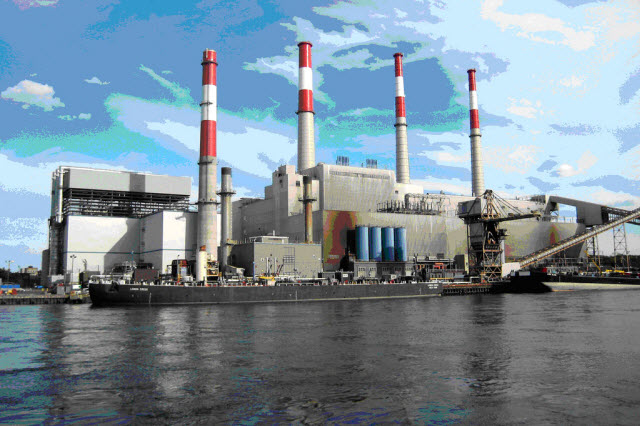Turkey Has the Highest Economic Growth in the World for 1st Quarter 2011
Turkey notches the highest economic growth in the world for the first quarter this year, but the trade deficit continues to threaten the pace.
Growth in the first quarter was led by a surge in private spending. As of May, sales of automobiles are up by around 40 pct. AFP photoWith private investments and domestic consumption leading the charge, Turkey claimed the top spot in economic growth worldwide for the first quarter of 2011 with a blistering 11 percent, according to the Turkish Statistics Institute, or TurkStat.
At this rate Turkey will surpass $742 billion, its pre-crisis 2008 level of gross domestic product, by the end of the year, Premier Recep Tayyip Erdoğan said Thursday during a meeting with his Justice ruling party’s, parliamentary group.
Turkey led the world in first-quarter growth this year, posting an astounding rate of 11 percent thanks mainly to private investments and consumption, according to data revealed by the Turkish Statistics Institute, or TurkStat.
The fastest growing sectors in the quarter were wholesale and trade, which boasted a 17.2 growth rate. Construction was another leader at 14.2 percent while the energy, transportation and communication sectors also supported the growth.
Speaking at his Justice and Development Party, or AKP’s, parliamentary group meeting Thursday, Prime Minister Recep Tayyip Erdoğan said Turkey would soon surpass the gross domestic product, or GDP, of $742 billion the country had created in 2008, before the global economic crisis.
Argentina and China followed Turkey with rates of 9.9 percent and 9.7 percent.
The positive economic news, however, was contrasted by the country’s large trade deficit.
Concerns
Turkey’s exports in May reached a volume of 10.9 billion Turkish Liras, an 11.7 percent rise compared to the same month a year earlier. Imports, on the other hand, hiked 47.6 percent, reaching a total volume of 21.5 billion liras, resulting in a gap of 10.57 billion liras – a 104.2 percent increase – TurkStat data said Thursday.
In the first 5 months of this year, the country’s exports neared $54.3 billion from $45.2 billion over the previous year, a 20.1 percent increase. Imports, meanwhile, reached $98.2 billion from $68.2 billion, reflecting a 43.8 percent growth. The gap stood at nearly $43.8 billion as the exports accounted for only 55 percent of the import total.
While many emerging economies were enjoying big growth rates in the first quarter, Europe, which has been fighting with debt problems, grew an average of 2.5 percent, while non-eurozone countries such as Estonia, Lithuania and Sweden achieved big growth rates.
Leading indicators have shown no slowdown in private consumption, and investment expenditures are still strong, said Turkish lender Akbank in a note to investors after the release of the figures.
“The foreign trade gap, excluding the energy sector, hit $25.9 billion in the first five months of the year,” the note said.
Foreign trade statistics from May did not surprise market players since it confirmed that deterioration in the monthly foreign trade deficit persisted in May, said Özgür Altuğ, the chief economist at the BGC Partners said in a separate note. “However, the monthly deficit was again larger than expectations.”
“In addition to the aforementioned factors, foreign trade figures adjusted [to the season and the business day] also signal that the worsening is continuing,” he said. “Consumption goods imports, which should decelerate in the coming months, recorded a year-on-year increase of 38 percent in May, which was 38 percent in April, while imports of intermediate goods registered a 37 percent year-on-year increase in May, which was again 37 percent in April.”
Altuğ said the product breakdown of increasing import items were as follows: Aircraft (325 percent); cereals (306.2 percent); precious metals (243 percent); motor vehicles (65 percent); energy (50 percent); machinery (50 percent); rubber (48 percent); and copper (45 percent).
“It is worth noting that the impact of rising global energy prices will be felt more pronounced in June, according to our analysis,” he said.
The foreign trade data again did not offer a calming picture in May, said Banu Kıvcı Tokalı of Destek Securities. The rise in the 12-month current account deficit figures will continue until the mid-third quarter, she said. “We can see a level of $70 billion in that period.”
“Rather than showing evidence that the Turkish economy is responding to the Central Bank’s ‘unorthodox’ efforts to slow it down, this data suggests that the economy may even have accelerated – real GDP grew by 9.2 percent year on year in the fourth quarter, and by 8.9 percent for the full year in 2010,” Timothy Ash, the chief economist at the Royal Bank of Scotland said in a written statement.
June 30, 2011
SOURCE: Hürriyet Daily News



